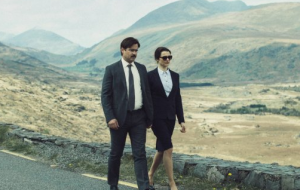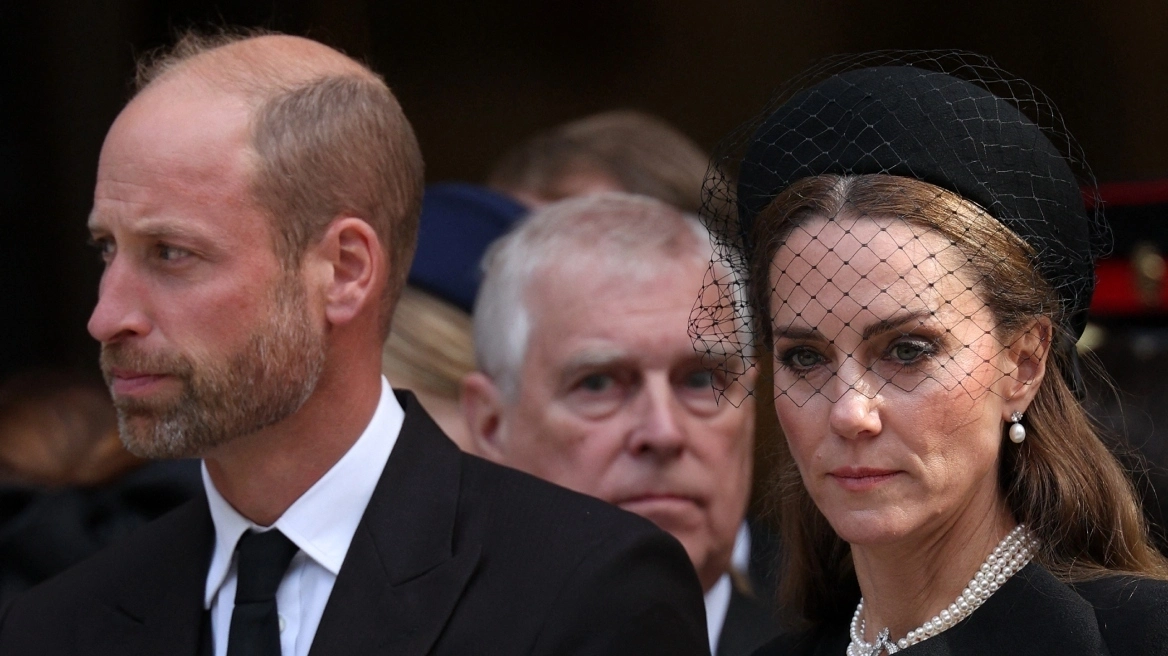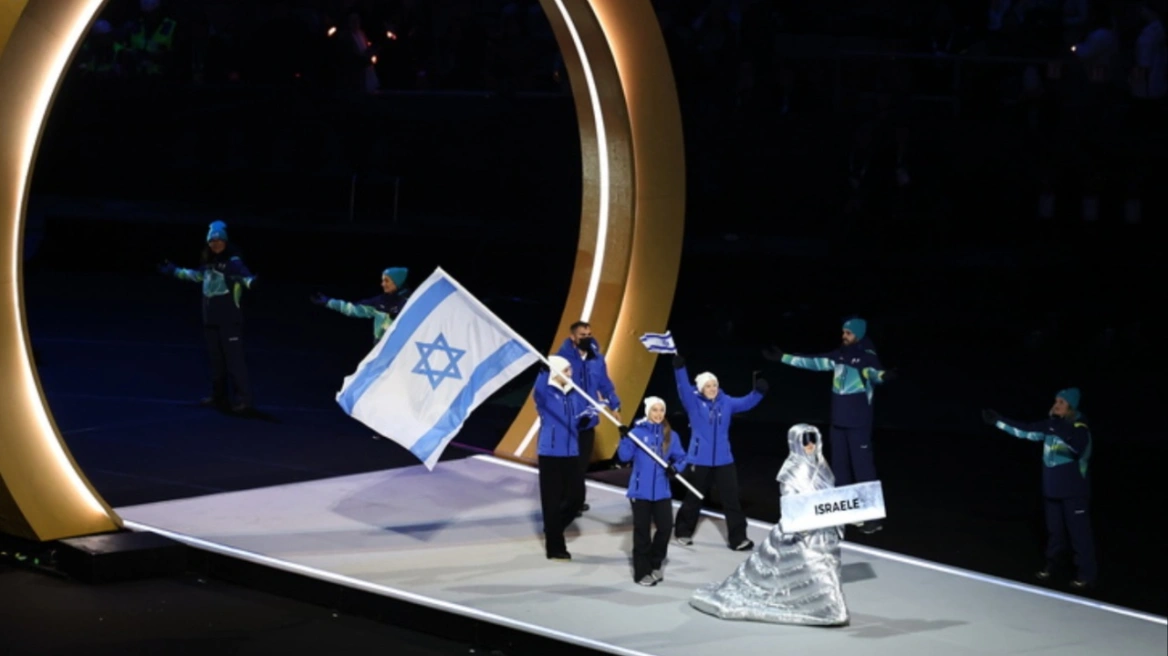Esquire, the renowned Men’s fashion magazine released its top 25 movies for 2016, with the editors’ top pick being Greek director Yorgos Lanthimo’s “The Lobster”, starring Collin Farrell. It is quite an honour for a Greek film to beat out some of the biggest names in the film industry. Another notable Greek entry into its list at 10th spot is Athina Rachel Tsangari’s “Chevaler”. Here is the list as posted by Esquire:
1. The Lobster
Greek director Yorgos Lanthimos’ The Lobster is one of the strangest movies in recent memory—and one of the most hilariously (and surprisingly profound) ones as well. In this pitch-black future-society saga, a single man (Colin Farrell) checks into a hotel where, by law, he must find a mate within 45 days or be transformed into the animal of his choice. (His preference? A lobster.) In that wacko locale, Farrell’s lonely loser pals around with other equally strange sorts, and tries to forge a romance with a female counterpart, before eventually fleeing for the woods where anti-monogamy rebels are stationed. A deadpan dystopian comedy that also functions as a bizarro-world examination of love, relationships, marriage, and the basic human desire for connection, Lanthimos’ film is that rare thing in today’s cinema: an unqualified original.10. Chevalier
Like her Greek countrymate (and frequent collaborator), The Lobster director Yorgos Lanthimos, Athina Rachel Tsangari is a droll social satirist, and her latest plays like an opposite-sides-of-the-gender-coin companion piece to 2010’s Attenberg. Here, Tsangari’s focus is a group of men on a deep-sea fishing trip who decide that they’ll pass the time by playing an elaborate “game” to determine which of them is “The Best in General.” To figure out who deserves that lofty title, these self-centered individuals set about judging each other in every conceivable manner. That, in turn, leads them to behave in increasingly competitive ways, all of which Tsangari depicts with a cool detachment that only further heightens the scathing absurdity of their loony decisions and actions. Mocking the macho male psyche with sharp observations about masculine aggression and ego, it boasts a deadpan wit accentuated by cinematography that places a premium on off-kilter imagery.2. Green Room
The most hardcore thriller in years, Jeremy Saulnier’s follow-up to 2013’s critically acclaimed Blue Ruin is another exercise in extreme, nail-biting suspense, this time about a just-scraping-by punk band (comprised of the late Anton Yelchin, Alia Shawkat, Joe Cole, and Callum Turner) that unwisely decides to accept a gig at a rural neo-Nazi music club. When they happen to witness the aftermath of a murder, they become captives of the resident skinheads and their leader (a terrifying Patrick Stewart), leading to a prolonged showdown which Saulnier stages as a series of quiet, panic-stricken moments and bursts of brutal violence—a storytelling rhythm in tune with the sludgy punk and metal thundering through the venue’s speakers. A relentless assault on one’s nerves that pummels viewers with the same all-out viciousness exhibited by the racists slam-dancing around the venue’s grimy, beer-soaked floors, Green Room (which we dubbed “mosh-pit cinema”) leaves a lasting mark.
3. Louder Than Bombs
Joachim Trier isn’t a household name in America, but the Norwegian filmmaker’s first two features—2006’s Reprise and 2011’s Oslo, August 31st—were startlingly incisive dramas about young men struggling with issues of adulthood, responsibility, and regret. His third feature, and first in English, is this sterling work about a teacher (Gabriel Byrne) and his two sons, married Jonah (Jesse Eisenberg) and disaffected high-schooler Conrad (Devin Druid), trying to come to terms with the death of their famous photographer matriarch Isabelle (Isabelle Huppert). That woman’s shadow, and the secrets she took to her grave, loom large over their present, fraught-with-friction circumstances, which Trier investigates with a novelist’s attention to his character’s interior lives. Employing subtle visual framing and numerous narrative devices (most forcefully, flashbacks), Trier’s Louder Than Bombs is less than explosive look at out-of-control emotions than a slow-burn portrait of miserable loved ones desperately trying to reconnect, as well as to reconcile their personal, artistic and familial desires.
4. The Fits
No 2016 debut has been as striking as Anna Rose Holmer’s The Fits, an immaculately conceived and executed small-scale indie about a young African-American girl named Toni (superb newcomer Royalty Hightower) who, while living in Cincinnati’s West End, spends her time working out at a local boxing gym with her brother, even as she increasingly finds herself drawn to the championship-winning dance team that practices in the same facility. Holmer’s precise aesthetics echo her protagonist’s detachment from both the pugilistic and dance cliques from which she seeks acceptance, and her slow-motion sequences of the troupe’s rhythmic routines have an overpowering, hypnotic grace and splendor. Fixated on Hightower’s subtly expressive countenance and her spatial (and emotional) relationship to her peers, the film is more than just a coming-of-age saga; it’s an expressionistic snapshot of a young girl trying to transcend her estrangement, define her identity, and find a place for herself in the world.
5. Hell or High Water
David Mackenzie’s outlaws-on-the-run saga concerns two brothers (Chris Pine and Ben Foster) who embark on a bank-robbing spree in order to raise enough money to save their family farm from foreclosure—a conceit that lends the film a piercing timeliness. Nonetheless, the true power of this rugged genre effort comes from its stars and its attention to both atmosphere and character detail. As yin-yang siblings compelled to embark upon their mission by need, fury, and inherent recklessness, Pine and Foster share a compelling chemistry. And they’re complemented (and, in fact, surpassed) in the charisma department by the always great Jeff Bridges. As the just-about-to-retire sheriff hot on their trail, Bridges delivers one of his finest performances, radiating both wit and regret as an old-school relic who—like the criminals he’s pursuing, and the beaten-down land that he roams with his Native American-Mexican partner Alberto (Gil Birmingham)—is on the precipice of transforming into a ghost from a bygone era.
6. Gleason
Steve Gleeson was a sturdy New Orleans Saints safety who became immortalized in team history when, during the squad’s first game back in the Superdome following Hurricane Katrina, he blocked a punt against the Atlanta Falcons—a play that came to symbolize the city’s indefatigable comeback spirit. Tragically, at the too-young age of 34, and on the eve of his first child’s birth, Gleeson was diagnosed with ALS (aka “Lou Gehrig’s Disease”). Using copious footage shot by the former athlete himself (some of it addressed to his unborn kid), J. Clay Tweel’s documentary details Gleeson and his wife Michel’s struggle with that incurable condition. To say Gleeson is heartbreaking is a vast understatement, but amidst its tears-inducing horrors, it conveys a genuinely uplifting sense of its subject’s refusal to quit, especially once he endeavors to use his fame to help others with ALS. The story of a man, and family, torn asunder by disease, and yet unwilling to just accept defeat, it’s the non-fiction film of the year.
7. Mountains May Depart
No filmmaker has been more adept at examining China’s political/culture climate than acclaimed director Jia Zhangke, and his latest only reaffirms that standing. A story split in three, Zhangke’s trifurcated drama—with each chapter shot in ever-expanding visual aspect ratios—concerns three friends caught in a love triangle on the eve of the millennium. While that dawn-of-a-new-century moment is infused with pressing hope, the subsequent development of these men and women’s lives—involving marriage, children, divorce, and illness—provides depressing rejoinders to their early optimism. Rife with bemused commentary about the alienating role technology plays in interpersonal relationships, and opening and closing with tonally opposite dance sequences that further underline its intricate thematic arguments, Mountains May Depart is an alternately funny and morose study of a country’s (and global society’s) evolution, and its positive and negative ramifications for its inhabitants.
8. The Invitation
For her first feature since 2009’s Jennifer’s Body, Karyn Kusama delivers one of the year’s great gripping thrillers with The Invitation, an intensely unnerving story about a Los Angeles man (Logan Marshall-Green) who, with his girlfriend in tow, attends a dinner party hosted by his ex-wife (Tammy Blanchard) and her new boyfriend (Game of Thrones’ Michiel Huisman)—an awkward situation compounded by the fact that Marshall-Green and Blanchard’s characters split following the death of their young child, which neither has properly gotten over. Kusama shrewdly lays out her psychological dynamics, and she imbues her action with an eeriness that suggests there’s more to this get-together than initially meets the eye, and which slowly builds to near-unbearable levels. By the time its revelations finally arrive, The Invitation has become a small-scale masterwork of sustained anxiety, and all the more chilling for casting its eventual horrors as the natural byproduct of madness begat by grief.
9. Embrace of the Serpent
Something like a cross between a long-lost documentary and Francis Ford Coppola’s Apocalypse Now, Colombian writer-director Ciro Guerra’s drama charts two hallucinatory courses—during distinct, and yet eerily similar, time periods—through the Amazon. In both stories, a German interloper seeks assistance from a native shaman in his quest for a plant that reportedly has magical healing qualities, with both separated-by-decades journeys revealing the ways in which Western interlopers has affected the region and its indigenous cultures. Shot in beautiful black-and-white, Guerra’s trance-like tale is rich in ethnographic details, and its lead performances from non-professional actors Nilbio Torres and Antonio Bolivar Salvado Yangiama (both as the shaman) are unaffected and haunting. Though highly critical of the damage wrought by modern civilization in this untamed land, it’s a film that refuses to simplistically lecture, instead ultimately expressing a mature ambivalence about colonialism’s complicated legacy.
11. The Nice Guys
Shane Black perfected the mismatched buddy-cop formula with 1987’s Lethal Weapon, so it’s no surprise that, 29 years later, he’s delivered another bickering-duo gem set in the L.A. underworld. In this thoroughly amusing 1970s neo-noir comedy, Ryan Gosling is a bumbling private investigator who finds himself paired with Russell Crowe’s for-hire enforcer on a case involving a missing girl and a dead porn star. As they make their way through a seedy showbiz landscape, Crowe and Gosling prove an irresistibly combative, cantankerous pair, with Crowe’s gruff exasperation clashing with Gosling’s doofus bumbling. Energized by a dry, wry cynicism that borders on fatalistic desperation, The Nice Guys is an idiosyncratic crime romp that builds humorous momentum as it moves towards its mystery-unraveling conclusion. Plus, Gosling’s impromptu Lou Costello homage is one for the ages.
12. Kill Zone 2
Don’t worry if you haven’t seen the 2005 precursor to this Hong Kong-Chinese import (also known as SPLII: A Time for Consequences)—aside from their titles, the two films share no relationship. And don’t worry if you can’t follow its myriad crime-saga plot strands, which involves a dying Hong Kong gangster (Louis Koo) who sells organs on the black market and plans to kill his brother so he can steal his heart, a Hong Kong undercover cop (Wu Jing) intent on infiltrating this kingpin’s gang, and a Thailand prison guard (Tony Jaa) trying to save his daughter who is dying of leukemia. What matters here is that director Cheang Pou-soi’s film features the finest hand-to-hand skirmishes of the year, with Wu Jing demonstrating deft martial-arts skills and Jaa—he of Ong-Bak: The Thai Warrior fame—bringing the concussive thunder via his trademark elbow drops and flying knee attacks, which peak with him leaping, knees first, through the windshield of a moving bus. The film’s melodrama and comedy (including a subplot involving a Down’s Syndrome-afflicted teen texting with a dying child via emojis) are overcooked, but Jaa and Jing’s fighting prowess make this a must-see for genre aficionados.
13. The Handmaiden
South Korean auteur Park Chan-wook has made a name for himself with deliriously violent, sexually deranged revenge tales like Oldboy, Sympathy for Lady Vengeance, and 2013’s English-language Stoker (starring Nicole Kidman and Mia Wasikowska). Thus, The Handmaiden finds him back in familiar terrain, given that it charts a con man’s scheme to use a young female pickpocket to help him marry, and then commit to an insane asylum, a mentally unstable heiress—a ruse that gets hopelessly complicated the further it progresses thanks to a series of didn’t-see-that-coming twists. Rearranging characters around his narrative playing board like a devilish chess champion, Park stages his material with serpentine sensuality and playfully grim wit, all while presenting a vision of femininity that, true to his prior form, is seductive, sinister and empowered. Come for the luxurious period décor, uninhibited carnality and ominous atmosphere, and stay for the octopus.
14. Don’t Breathe
Director Fede Alvarez proved he was a gifted technician with his 2013 Evil Deadremake, but it’s his latest thriller that establishes him as more than just a look-at-me behind-the-camera showman. Alvarez’s latest concerns three kids (Dylan Minnette, Jane Levy, Daniel Zovatto) who, desperate to get out of their working-class circumstances, decide to rob a blind man (Stephen Lang) reportedly in possession of a stash of money hidden in his dilapidated home. Their plot, however, goes awry when that sightless individual turns out to be far more capable—and lethal—than anticipated, leading to a perpetrators-become-the-victims nightmare that the director orchestrates for maximum tension. Even when it eventually turns to third-act bombshells, Don’t Breathe is a work of superbly sustained suspense, employing its gorgeous widescreen visuals to deliver a bevy of heart-pounding thrills—and one that also, subtly, doubles as a commentary on the literal, emotional, and psychological decay that’s overtaken modern-day Detroit.
16. Hush
Hush is the first of director Mike Flanagan’s three 2016 releases (the second is this September’s Before I Wake, the third is October’s Ouija: Origin of Evil), and even though it was only released as a Netflix exclusive, this expertly executed thriller generates an impressive amount of terror from its bare-bones set-up. At a remote rural cabin, a deaf-mute author named Maddie (Flanagan’s wife, Kate Siegel) finds herself menaced by a masked predator whose intentions don’t extend past wanting to torment and then kill her. Their cat-and-mouse showdown is plotted with a preponderance of rational decision making and a dearth of stupid what-are-they-doing? moments, and the material’s consistent character-based internal logic goes a long way toward maintaining its sinister suspense. There’s nothing particularly fancy about Hush, but it does what all great economical thrillers do: It maximizes the terror promised by its premise through deft narrative and visual storytelling.
17. The Neon Demon
Nicolas Winding Refn may be international cinema’s most polarizing figure, a Stanley Kubrick-indebted filmmaker whose stylish violence is often put in service of celebrations-cum-critiques of twisted aggro masculinity. Here, however, he turns his attention to Los Angeles’ fashion industry for the story of a young beauty (Elle Fanning) striving to make it as a professional model. As befitting a Refn movie, The Neon Demon’s action is methodical, detached, and chilly, and it lavishes attention on the superficial glitz and glamour of its milieu while positing its protagonists as so hungry for the spotlight that they’ll do anything to achieve it. Eventually devolving into a prolonged, profane joke about the hunger for fame (and youth, and beauty, and power), the film has a coiling, serpentine malevolence that operates in harmony with its devilish sense of humor, all of which climaxes during a finale of sick satiric nastiness.
18. The BFG
Steven Spielberg, making his first movie for Disney, from a script by E.T. screenwriter Melissa Mathison, from the beloved 1982 children’s book by Roald Dahl: The BFGseemed like a slam-dunk summer hit, at least until audiences avoided it in droves. As it turns out, it was their loss. Far from the debacle implied by its poor box-office showing, Spielberg’s latest, about a young British orphan (Ruby Barnhill) swept along on a magical quest alongside a Big Friendly Giant (Mark Rylance, in a motion-captured animated performance), is a consistently wondrous fable about friendship, tolerance, and togetherness. Unfolding in winding, whimsical fashion, it provides a cornucopia of enchanting sights while also delivering one of the movies’ all-time great scenes involving farting (featuring none other than the Queen of England). Spielberg’s lovely visuals lead the way, although it’s Rylance’s elegant and heartfelt performance as the title character—his expressive eyes conveying a wealth of poignant lonely-outsider emotions—that truly elevates it above this year’s family-film pack.
more at Esquire.com
Ask me anything
Explore related questions





